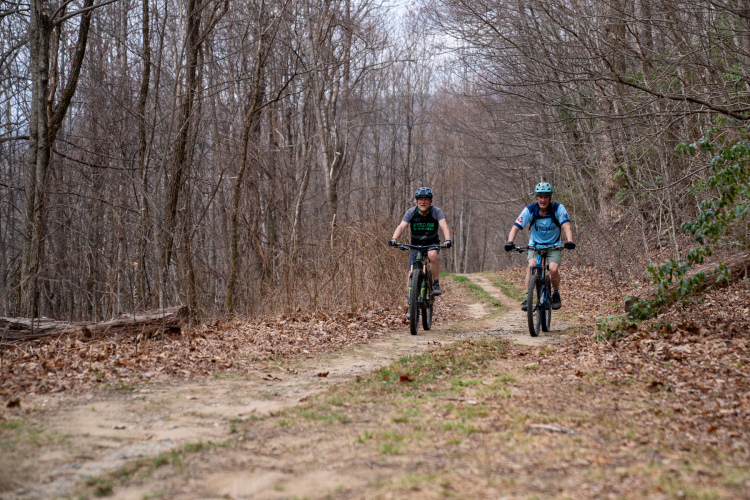As soon as Olympic mountain biking rolled out of the start gate, so did the opinions: XC is boring to watch. Why isn’t downhill or enduro an Olympic sport? The course is too easy. In other words, I’m a little upset that the discipline I am least interested in is getting so much attention right now.
What I think the two Olympic mountain bike races showed this time though, is that XC is still the most spectate-able discipline and the Olympics again proved to be a great international playing ground for mountain biking.
The stakes were higher and made for more entertaining racing
Most mountain bikers who follow racing understand what the World Champs jersey means for athletes, or how difficult it can be to remain consistent enough to win a season title. Unfortunately though, the majority of people who aren’t dedicated cycling fans don’t understand what this entails or even know what the UCI is.
The Olympics however, come around every four years and people around the world understand what the five colored rings mean. Not only are athletes adding medals for their respective countries in front of an immense international audience, those athletes gain notoriety through press, fans, and front-of-cereal-box deals.
Case in point: The Tour de France is the biggest event on two wheels every year and TDF stage winner and leader Mathieu van der Poel ditched the race so he could finish training for the Olympics. Unfortunately, MVDP crashed early on, possibly because he assumed a landing from a drop would still be where it wasn’t. But, just like that, a gold medal favorite was out of the running, in one of Olympic mountain biking’s biggest upsets this year.
Rivals Pauline Ferrand-Prevot and Jolanda Neff also had a brief incident on the Sakura drop, the feature which took MVDP out. Ferrand-Prevot squeezed the brakes going into the drop with Neff on her tail. Neff had to go around the feature and nearly endoed, but recovered and got a lead on Ferrand-Prevot, as she lost direction on the following climb. Neff later criticized Ferrand-Prevot, saying that it was a “stupid move” to brake before the drop. These aren’t the post-race, “great racing” high fives and hugs we usually see in mountain biking, and it seems like the pressure of this particular race made for a more stressful and colorful event.
The course was challenging all around, and other disciplines would be difficult to implement
There are a few reasons why it will be a long time before downhill or enduro will be in the Olympics. XC is ultimately more popular internationally, an XC course is easier to implement in an Olympic setting than a DH or enduro course, and the logistics and time needed to cover the gravity events are lengthy compared to cross-country.
Anyone who was truly bored with the event though likely doesn’t watch XC. Mass starts, the importance of achieving the holeshot, and the fact that there are nearly 40 riders on the track creates competition within a competition, and also makes for a more entertaining event to watch.
That’s not to say enduro or downhill are boring to watch in the least, but watching multiple riders compete for the best line on the course all at once instead of seeing who can race the fastest from point A to point B, one at a time, creates a different dynamic for the spectator and for the athletes.
While not everyone is 100% pleased with the course, it seems like the vast majority of people were impressed with the technicality. The Sakura drop is now famous, the steep rock climb that followed was difficult enough to knock Ferrand-Prevot out of contention, and when the rain fell on the women’s competition, nearly everyone battled with slippery mud and roots.
The attention on mountain biking was at a premium

Ahead of the Olympics, more and more major media stations started covering mountain biking. NBC, which has a multi-billion dollar contract to broadcast the Olympics ran scoops on mountain bike team changes, the Wall Street Journal has been covering Jolanda Neff, Tomas Pidcock, and Mathieu van der Poel, and the New York Times ran a huge multimedia piece on Kate Courtney ahead of the Games, and why it’s a big deal for Americans to have strong contenders in Olympic mountain biking. Courtney also now has partnerships with Visa and Chipotle. Holy-it’s-extra-for-the-guacamole, those are some big sponsorships.
Some might not like the attention this brings on our often low-key sport, but I think it’s pretty cool to see a spotlight on what we all can agree is something as mentally and physically challenging as swimming, wrestling, or ya know…table tennis.













2 Comments
Aug 3, 2021
Jul 31, 2021
Dead of winter would be a wee bit more welcome tho'.